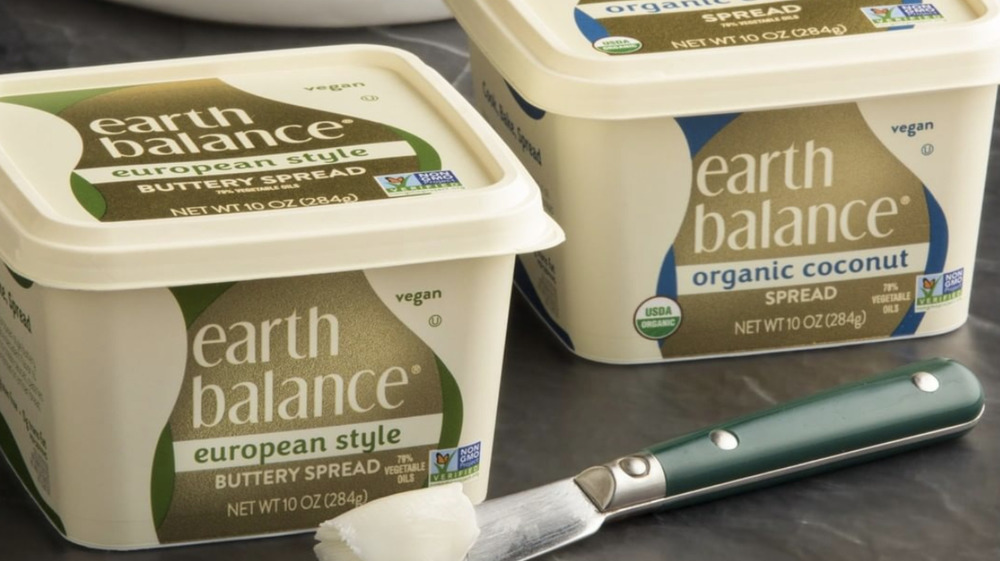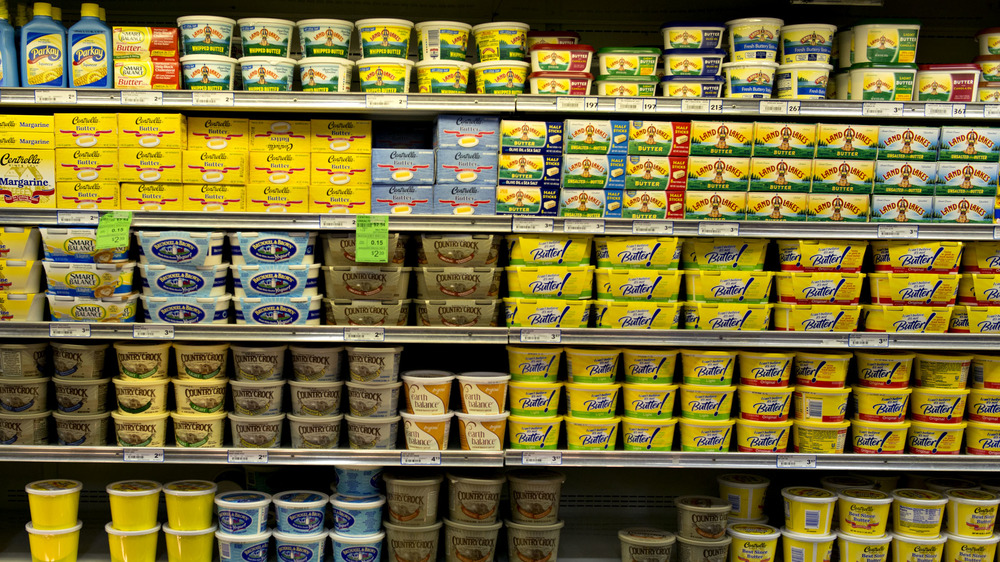Is Vegan Butter Really Healthier Than Regular Butter?
The label "vegan" brings to mind images of kale, Impossible Burgers, and toned yogis sipping green juices and lemon water. Meaning, when we think of vegan things, we think of healthy things. That's likely why many people who aren't vegan still reach for the non-dairy, non-meat alternatives to popular foods (see above reference to meatless burgers). Because most of us assume that if something is vegan, it must be better for us. But is that belief fact or fiction?
There is no real answer — because it depends on exactly what food you're looking at. Take vegan butter, for instance. Instead of being made with dairy as regular butter is, vegan butter is often made with coconut oil, palm kernel oil, olive oil, or some combination of the above. Sometimes labeled as organic, sometimes labeled as non-GMO, it may be sold under the guise of being healthier than your standard stick of Land O'Lakes. But is it really? Here's what you need to know about vegan butter vs. regular butter.
Vegan butter is lower in some types of fat, but higher in others
Because vegan butter and margarine are made with plant-based oils instead of dairy, it's often higher in monounsaturated fat, Health Digest reports. This is the "good" kind of fat that the American Heart Association explains provides your body with necessary nutrients and antioxidants that can lower your cholesterol. Vegan butter is also usually lower in saturated fat because it's dairy-free (via Health Digest).
But, the U.S. Food and Drug Administration (FDA) cautions that this type of fat can increase your risk of cardiovascular disease, so it's recommended to consume no more than 10 percent of your daily intake in saturated fat. According to Prevention, regular butter is 35 percent saturated fat compared to just 15 percent for vegan butter. However, vegan butter also tends to be higher in omega-6 fatty acids, which can cause inflammation (via Health Digest).

